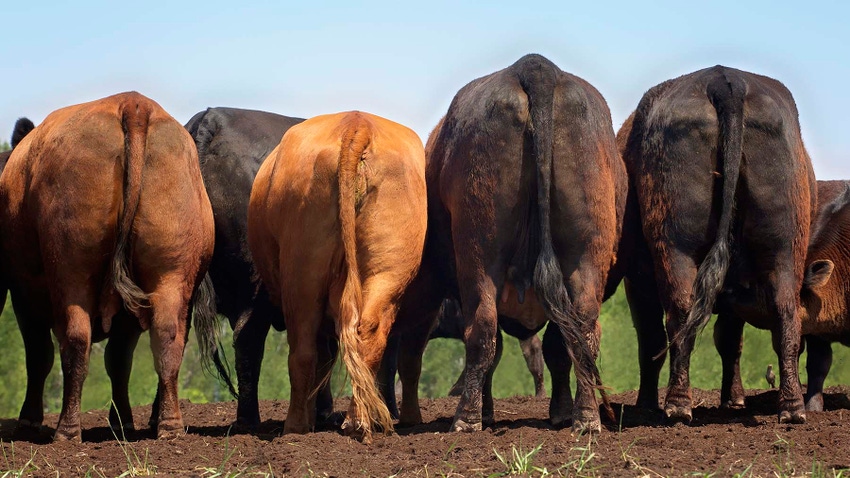
Pig pens smell foul and fowl pens may reek. But it’s cattle that specialize in silent but deadly emissions. At least potentially.
For years scientists have debated the environmental impact of methane from livestock. Now, a bipartisan group of Senators hopes to clear the air. On Wednesday, Sens. Michael Bennet, D-Colo., Mike Crapo, R-Idaho, Tammy Baldwin, D-Wis., and Jerry Moran, R-Kan., introduced the Enteric Methane Innovation Tools for Lower Emissions and Sustainable Stock Act.
The bill, commonly known as the EMIT LESS Act, would expand research programs for feed additives. It would also promote practices that reduce cattle emissions. The legislation includes voluntary conservation program incentives to make it easier for farmers to access new products.
“Colorado has led the nation by taking important steps to limit greenhouse gas emissions, including methane – and our state’s family farmers and ranchers play a crucial role in that effort,” Bennet says. “This bill will help Colorado’s cattlemen and livestock producers access every available tool to voluntarily reduce methane emissions, expand research into this field and improve the sustainability of their farms and ranches.”
Contrary to common belief, most cattle methane emissions come from burping. More than 90% of them in fact. Each year, a single cow can belch upwards of 220 pounds of methane.
According to USDA, the agriculture sector is responsible around 10% of all U.S. greenhouse gas emissions. Methane from livestock animals, mostly cattle, account for approximately a quarter of that.
Some studies put that number even higher, though there is still considerable disagreement. On the one hand, methane is more potent than carbon dioxide, meaning it could have a greater impact on global warming. On the other hand, it only stays in the atmosphere for around 12 years.
Auto emissions can stay in the atmosphere for more than 100 years. There is also evidence that naturally produced methane is part of the natural biogenic carbon cycle, making it less harmful than man-made fossil fuels.
Suffice it to say, cattle emissions aren’t the planet’s biggest problem. But reducing those emissions wouldn’t be a bad thing either.
“This bill will allow our nation’s livestock producers to be better positioned to compete in the global climate economy,” National Council of Farmer Cooperatives President Chuck Connor says. “This bill empowers USDA to direct resources to voluntary livestock practices that have incredible potential to reduce GHG emissions and increase profitability for our nation’s livestock producers.
Other organizations endorsing the bill include the American Feed Industry Association, Dairy Farmers of America, the International Dairy Food Association, the National Cattlemen’s Beef Association and the National Milk Producers Federation, among others.
About the Author(s)
You May Also Like






